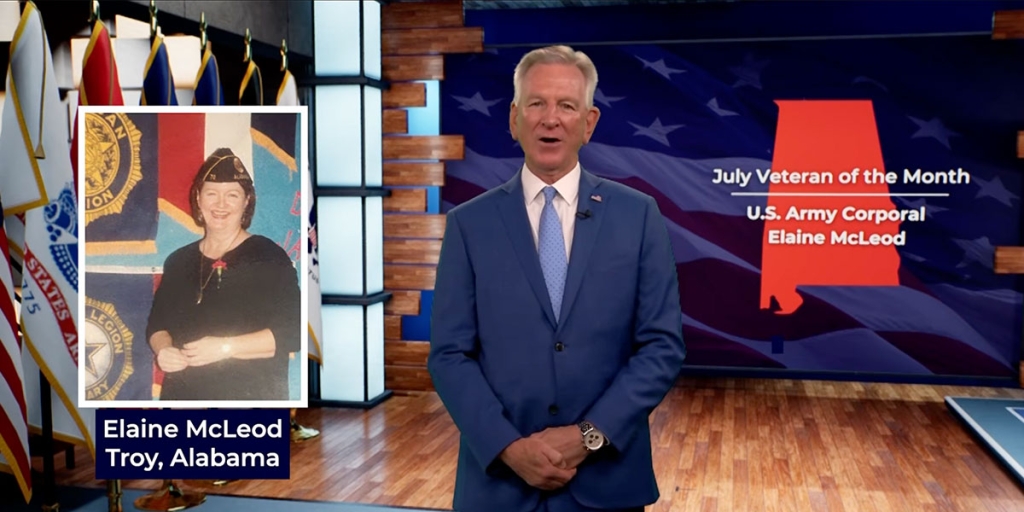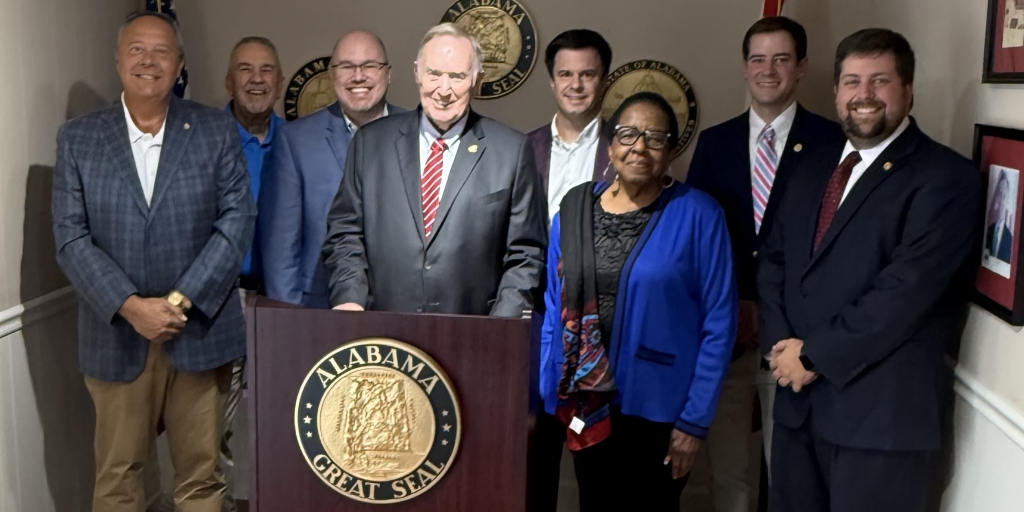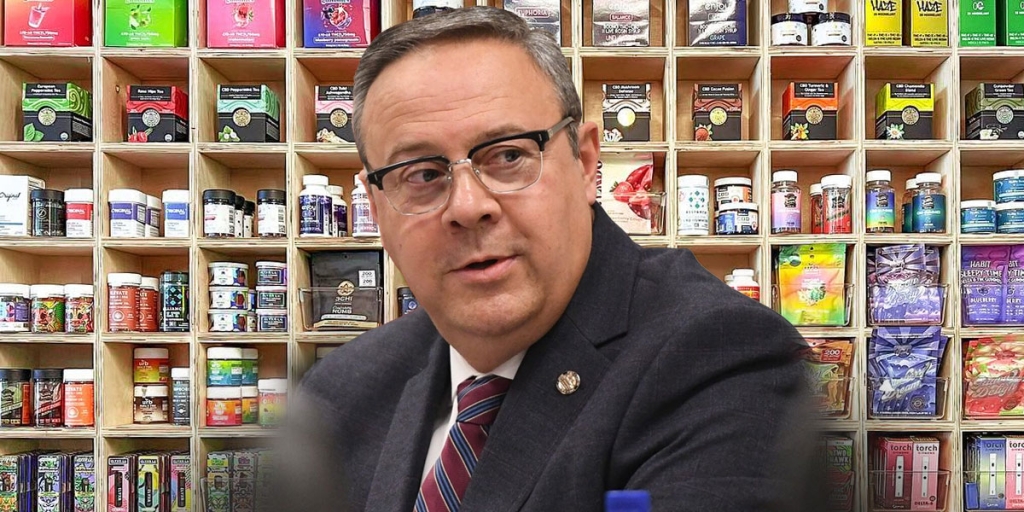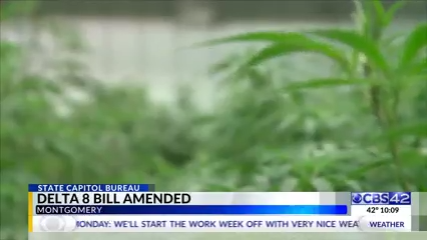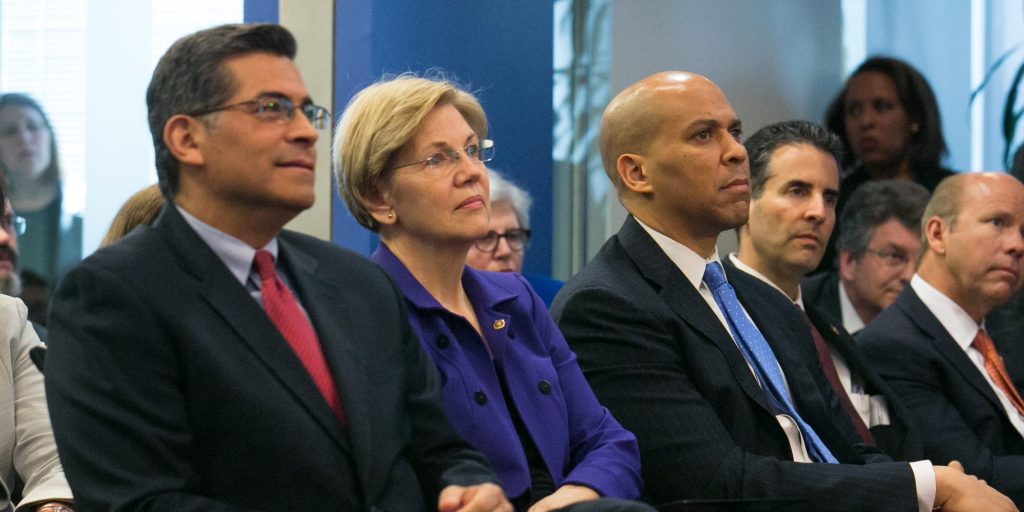As the Alabama Senate takes up the legal gaming package passed by the House, the bill’s sponsor, State Rep. Chris Blackshear (R-Phenix City) spoke to Yellowhammer News about some of the key aspects that went into the proposal from start to finish:
YHN: How did you, Rep. Andy Whitt (R-Harvest), Speaker Nathaniel Ledbetter (R-Rainsville), and other lawmakers in the House get together and identify some of the obstacles you had to overcome from legislation that failed in years past?
Rep. Blackshear: “Speaker Ledbetter asked Rep. Andy Whitt during the 2023 session to lead a study group on gaming in Alabama. We’ve known there’s a problem for a long time. Most recently, the Senate passed a comprehensive bill in 2021, of course we didn’t do anything with it, considering we only had two weeks remaining in the session, but we worked really hard and we made a lot of headway with that.
But with a new freshman class coming in last year, the speaker made a commitment that we wouldn’t do anything addressing gaming and that we needed some time to get settled and to continue to educate ourselves on the topic. I don’t think anybody in the house was surprised that we took up gaming legislation up this session.
We started that committee, there was seven or eight of us, and we broke it down in groups, one would research the lottery, we had a couple others on that committee that looked into what other states were doing relating to enforcement.
We were meeting weekly, the last six to eight weeks of session last year and had a big kickoff meeting the day after Sine Die last year about what we wanted our legislation to look like in the 2024 session.
We went to other states and sat down with lottery executives to learn how they run their lotteries and said, ‘Hey, if you were coming to Alabama and you were starting over today, knowing what you know now, how would you run and structure the Alabama lottery?
We visited a company that prints over 70% of all scratch off tickets for all lotteries nationwide. We went to their warehouse, we met with their security people, we met with their executives and we asked them the same question, ‘How would you run and structure the Alabama lottery if you were coming to Alabama as a new lottery provider?’
And then the biggest one – we had boots on the ground and started going around the state to see firsthand what the gaming landscape was in Alabama. We walked in nutrition stores that had gaming machines in the back, clothing stores that had machines in the back, a florist that had machines in the back.
In all, we were able to determine there were several hundred locations in this state that were operating illegal gaming. At that point we knew doing nothing any longer wasn’t an option on the table.
We sat down and said ‘Okay, we’ve got to draft this from the inside out. We don’t need any of the gaming interests to give us any language in this.’
Within the last four weeks, prior to the bill being introduced, was the first time we met with any parties that have gaming establishments in the state, and we only showed them their portion of the bill — not the entire legislation. There was nobody outside the legislative body that saw the full bill until we introduced it. We did keep both the majority and minority caucuses updated, along with leadership in the House. We also had members of the Senate involved from day one and they stayed engaged throughout the process.
Our whole goal the entire time was every day we let it pass is another day we’re seeing illegal operations pop up all over Alabama. More communities are having money drained from their areas and not being reinvested. And every day that goes by, we don’t have the appropriate enforcement, clear laws or any increased penalties that add teeth to the law that hold people doing things illegally accountable.
Lastly on this, multiple polls conducted across the state have made one point very clear, the people want to vote.
YHN: Does the proposed Gaming Commission have the power to issue more licenses beyond the 7 allotted for under the constitutional amendment bill? How does that work?
Rep. Blackshear: “Absolutely not. No additional licenses can be awarded without a vote of the people. That was the entire point of having the locations in the constitutional amendment. We have all these illegal operations – but we do know there are three PCI locations that are on federally-protected land – which we have no control over for regulation, taxation, not unless we can get a compact, which the Governor must sign.
So, if we abolished everything, we’re left with three (PCI) casinos in the state of Alabama. What we said we’re going to do is adding no more than seven locations – outside of PCI’s – so your total count would be 10.
The way we came up with the locations was we went back to legislation that was passed in the early 80s – where the tracks were created for the dog racing – which was Mobile, Macon, Greene, and Birmingham. So that gave us those four.
And then the other areas that came in, we knew we had to have one for a potential compact with PCI, they’ve been requesting a Northeast location for the last several years and was in the legislation passed by the Senate in 2021.
Lowndes and Houston Counties were two late additions to those areas, and just from where they were, geographically, we thought they made sense for this. That would be the max of 10.
So, the Gaming Commission, nor the legislative bodies would have the authority to expand to an eighth, ninth, or 10th license location. That’s one of the biggest lies being told about this — that the state can stroke a pen and add licenses at any time.
The second piece to lock them down is the amendments that we put on in committee, and now in the floor amendment — those six licensed facilities outside the compact now, the ones in Mobile, Macon, Greene, the City of Birmingham within Jefferson County, Houston, and Lowndes, those six are locked down to that county – they cannot be transferred to any other counties in the state.
So, if the license is not issued there, they stay there. The Northeast location for the compact is the only potential one that has the flexibility that could be moved and that’s only if a compact is not reached.
Then we would have to come back to introduce another bill to change the enabling legislation that would only affect the compact location.
I’ve seen several entities state that we can transfer licenses to any county at any time. That’s not just misleading – it’s a complete and total lie.
The final point is that with all of these seven licenses, we added an additional level of protection for the locals: Your county commission, or your city council must pass a resolution saying ‘yes, we support this licensed casino in our jurisdiction.’
If they don’t want to do that, they can have another vote of the people just in their city or in their county to allow them to vote. And if all three of those things fail, that license stays dormant in that county – it cannot be transferred to another county.”
YHN: How would the Commission’s enforcement division fit into the overall picture of existing Alabama law enforcement agencies?
Rep. Blackshear: “It’s a specialized enforcement area. ALEA doesn’t have the specialists or manpower to focus on illegal gaming activities. Nor does the AG’s Office. I think the AG’s office was on record a month or so ago stating that they don’t have the manpower to go off and attack all the illegal operations that we currently have today.
This is a self-funded law enforcement division that is under the Gaming Commission that works alongside our local law enforcement officers.
But this way, because it’s going to be specialized, we’re going to be able to bring in people that have experience in investigating illegal gaming activity in casinos or online sports betting or with lotteries – we’re going to bring in specialized auditors that are experts in this area.
I don’t think any of our existing law enforcement entities are equipped for this right now.
Not to mention, ALEA is having a hard enough time putting more troopers on the road, we have a shortage and we have another 70-plus that are eligible for retirement this year.
But the big thing is this will be funded by the gaming revenues itself.
The people against this bill like to say we’re growing government. The problem with that argument is that we’re doing this at zero cost to taxpayers.”
YHN: As written and approved by the House, where would the revenue be distributed?
Rep. Blackshear: “All of our funding is split into two buckets, or two supplemental appropriation buckets. 100% of the lottery proceeds will go to education. Out of those gross proceeds, the lottery will pay for its reasonable expenses for running the lottery.
Everything else goes into the Gaming Trust Fund, which will be annually appropriated by the General Fund committee. Both are for non-recurring expenses, and we listed some in the enabling legislation that shall be discussed, but they were just ideas, they were examples of things that we need to look at.
Anyone that says this bill expands Medicaid is either uninformed or spreading a false narrative, and I’d bet it’s the latter.
I think the biggest thing, specifically regarding Medicaid, is this year’s general fund request we received from Medicaid is a $91 million year-over-year increase. If we didn’t have the additional supplemental dollars that we have this year, we would have to cut other programs’ requests by $91 million to fund Medicaid just to service the people that are under that umbrella today.
If this gaming legislation was in place, and we only had that as a supplemental appropriation option, we could pull $91 million out of the gaming trust funds and do a one-time, non-recurring payment to Medicaid to offset that $91 million. And look what that does. That saves all these other agencies and programs from being cut out.
So, we want to be able to pivot. An example I’ve used before is if this was in place when COVID hit – how much faster we would have been able to respond to our state needs, instead of waiting on federal dollars? We would have had dollars right there. We could quickly address issues across the state.
What we need to make sure is very clear and this is probably the most important thing, above all: The legislative body does not have the authority to expand Medicaid. That is the executive branch, and only the executive branch.”
Grayson Everett is the state and political editor for Yellowhammer News. You can follow him on Twitter @Grayson270.





